Are Jumping Spiders Venomous? The Truth About Their Bite
You’ve probably spotted jumping spiders, with their endearing, large eyes, hopping about your home. But are these tiny creatures capable of causing harm with a venomous bite? Let’s unravel the facts about these fascinating spiders and determine if their bite is something to be concerned about.
Decoding the Bite: Venom & Its Effects
Yes, jumping spiders, those charming creatures, are indeed venomous. However, their venom is relatively harmless to humans, comparable to a mild mosquito bite.
Think of venom as a tool creatures use for survival. Jumping spiders use their venom to swiftly overpower their insect prey. However, for humans, it poses minimal threat. Most people experience mild redness and itching at the bite site.
While serious reactions are rare, some individuals might be more sensitive to a jumping spider’s venom, experiencing increased swelling and itching. In exceptionally rare cases, symptoms like dizziness or a rapid heartbeat might occur. If that happens, it’s always best to consult a medical professional.
It’s important to remember that jumping spiders are not aggressive. They are far more likely to hop away from danger than engage in confrontation. Their primary interest lies in keeping our gardens and homes free from pesky insects.
So, the next time you encounter a jumping spider, remember, they are more afraid of you than you are of them. Take a moment to appreciate their unique beauty and their significance in our ecosystem.
Are UK Jumping Spiders Dangerous? Decoding the Bite and Venom
We’ve discovered that jumping spiders are remarkable little creatures. But what about those fangs? Should we be worried about their presence in the UK? The good news is that UK jumping spiders are not considered dangerous to humans. Their venom is specifically tailored to their insect prey, primarily flies and other small creatures. It’s simply not potent enough to harm a larger being, like a human.
However, this doesn’t mean a jumping spider bite is entirely inconsequential. If they feel threatened, they might bite, but even then, their bite is more likely to be a minor annoyance than a medical emergency. Think of it as a bee sting – perhaps a bit painful and itchy, but certainly not a reason to rush to the hospital.
Typically, you might experience some redness around the bite, and it might feel itchy or even a bit stingy. Sometimes, it might swell up a bit, similar to a mosquito bite. These reactions are entirely normal and usually disappear swiftly.
However, it’s crucial to remember that everyone reacts differently. While most individuals will easily brush off a jumping spider bite, some people might have an allergic reaction, although this is fairly uncommon. If you suddenly feel dizzy, have difficulty breathing, or notice any other unusual symptoms, it’s best to err on the side of caution and seek medical attention.
If you do happen to get bitten by a jumping spider, the recommended course of action is to wash the bite thoroughly with soap and water. Then, apply a cold compress or ice pack to the area to reduce any swelling. If you’re experiencing discomfort, an over-the-counter pain reliever should suffice.
Remember, UK jumping spiders are generally harmless creatures, more preoccupied with their next meal than sinking their fangs into you. Nevertheless, it’s always wise to stay informed so you can react appropriately if you ever come face-to-face with one of these captivating creatures.
Is It Safe to Hold a Jumping Spider? Unveiling the Truth
Have you ever wondered if it’s safe to hold one of those fascinating jumping spiders? It’s a question many people ponder. The short answer is – probably! They would much rather leap away than bite, and their venom is not a significant concern for humans. It’s more akin to a mosquito bite than anything else. But, just as with any creature, there are a few things to keep in mind to ensure a safe and enjoyable interaction for both parties.
Those Tiny Fangs, Though… What’s Up with Jumping Spider Venom?
Jumping spiders use their venom to secure their meals, which consist mainly of insects. They pose no real threat to us! Their venom is far weaker than a bee sting, designed to act swiftly on their prey, not to cause us any harm.
“Jumping spiders may contain venom, but this venom is not capable of causing any harm to humans.” – PestWorld
Gentle Giants: How to Hold a Jumping Spider (If You Really Want To)
If you’re feeling adventurous and want to hold a jumping spider, the key is to remain calm and collected. Picture yourself attempting to befriend a tiny, jumpy neighbor. No sudden movements! The last thing you want to do is startle them. Instead of grabbing, try gently guiding the spider onto your hand. And remember, no squeezing! If your new friend seems frightened or tries to make a run for it, let them go.
What If It Bites?
While bites are uncommon, accidents can happen, even in the spider world. If a jumping spider does bite you, it will likely feel similar to a mosquito bite – perhaps a bit itchy or red. This usually disappears quite quickly. However, in very rare instances, someone might experience a stronger reaction, similar to an allergy. If you notice anything out of the ordinary or the bite seems worse than usual, it’s always best to consult a doctor, just in case.
The Bottom Line on Jumping Spiders
For the most part, jumping spiders are harmless little creatures far more interested in catching flies than biting people. Their venom is not a threat to us, and they’d much rather jump away than engage in a fight. That said, a little respect goes a long way! If you decide to hold one, be gentle, stay calm, and you’ll both likely have a pleasant (if brief) encounter.
Why Do Jumping Spiders Wave? Unraveling the Secrets of Their Adorable Gestures
Have you ever seen a jumping spider and noticed it seemingly waving its little legs at you? It’s undeniably adorable, but don’t be fooled! They’re not actually trying to greet you. This charming behavior is all part of their fascinating visual communication system.
Think of it as their own secret language, but instead of words, they use those captivating leg movements. They’re basically trying to communicate with other creatures, including you, conveying messages about their intentions.
So, why the waving? Well, it could be a few things. Sometimes, it’s a defense mechanism. By waving their legs, they might be trying to appear larger and more intimidating to ward off potential threats. Other times, it’s all about romance! Male jumping spiders are renowned for their elaborate courtship dances, and yes, you guessed it, leg waving plays a significant role in winning over a potential mate.
While researchers believe they use waving to communicate with other jumping spiders, the specifics of those conversations remain somewhat of a mystery. Scientists are still working to crack the code of this intricate spider language!
And it’s not just jumping spiders that engage in this leg-waving behavior. Many other spider species use these kinds of leg movements as well, highlighting the crucial role visual communication plays in their survival.
Now, while some people might feel uneasy around spiders, it’s important to remember that jumping spiders are generally harmless to humans. Their venom is designed to subdue their insect prey, not people. So, the next time you see one, there’s no need to be afraid! In fact, they are more likely to jump away from you than towards you.
Believe it or not, these little creatures play a vital role in our ecosystem. They are like tiny pest control experts, helping to keep insect populations in check. So, let’s give a round of applause to jumping spiders and their captivating footwork!
Interested in learning more about the animal kingdom? Check out these other fascinating articles:
- Are Dogs’ Mouths Cleaner Than Humans? The answer may surprise you!
- Did you know that elephants are scared of mice? It’s true!
- Unlock Water’s Symbolism: A Cross-Cultural Exploration - April 20, 2025
- Identify Black and White Snakes: Venomous or Harmless? - April 20, 2025
- Unlocking Potential: Origins High School’s NYC Story - April 20, 2025
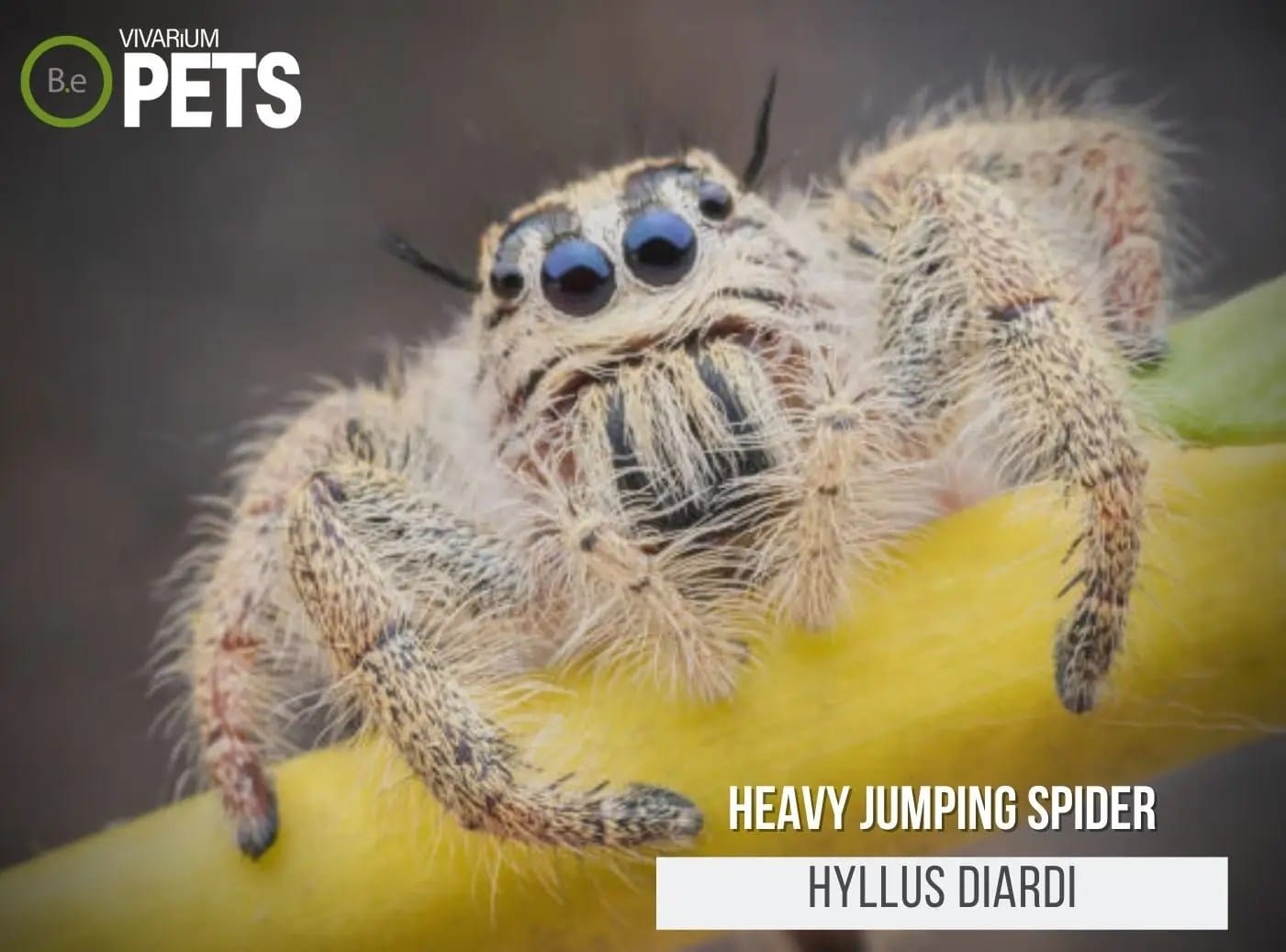

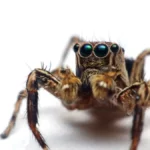
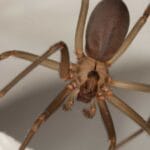
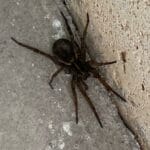
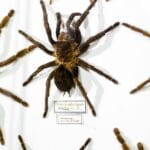










1 thought on “Are Jumping Spiders Venomous? The Truth About Their Bite”
Comments are closed.